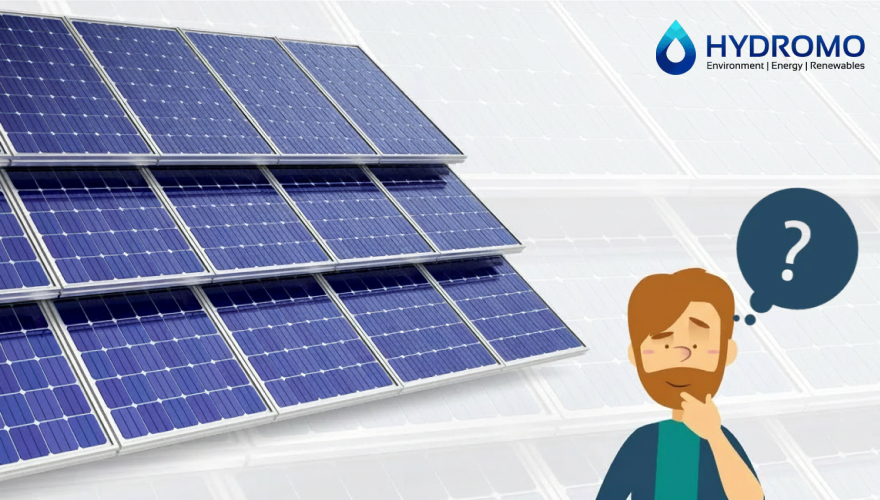
Saving money, minimising your carbon footprint and investing in a sustainable future with a 1kW of solar system- the perfect place to start with small homes and business in India. The size of this system is the ideal balance between cost-effective, space, and the powering of the necessary appliances.
What Is a 1kW Solar Panel System?
An ideal solar system of 1kW is capable of producing up to 1,000 watts of power when the sun is shining. It is appropriately ideal to run simple domestic devices like fans, LED lights, a television, a small fridge, and air conditioning during small periods. It does not however support heavy equipment or motors.
Visa How many solar panels do you need to make 1kW?
The panels will be determined by the wattage rating of individual solar panels:
400W 250W The 250W panel has a capacity of about 1000W/250W = 4, so you need about 4 of them to get 400W.
When 330W panels are used: 3 panels (1000W/330W = 3).
The 1kW solar systems in India are mainly 3 or 4 panels of 250 w to 330 w. More efficient panels such as monocrystalline or bifacial can be used with fewer panels to make the required power of 1kW.
Key Specifications and Requirements
| Specification | Details |
| Panel Wattage | 250–330 W |
| Number of Panels | 3–4 panels |
| Load Capacity | Up to 800W |
| Estimated Energy Output | 4–5 units/day (120 units/month) |
| Space Required | 80–130 sq ft of shade-free rooftop |
| Appliances Powered | Fans, lights, TV, fridge |
| Warranties | 25 years for panels, 5–10 years for inverters and batteries |
What Is the Workings of the Solar System?
Solar panels receive the sun rays and transform them into direct current (DC) electricity. The DC is then changed into alternating current (AC) with the help of a solar inverter that can be used in your home appliances. On grid systems excess electricity is sent to the grid where solar credits are earned, with off grid and hybrid systems having battery backup or night time storage.
Space to be allocated during installation.
The area of clear, shadow free rooftop of around 80 to 130 square feet of a 1kW system is the typical size needed to effectively operate it. Effective space evaluation is vital towards effective electricity production.
Benefits of a 1kW Solar System
- Lower power expenses through fulfilling a huge percentage of yearly energy requirement.
- No moving parts; therefore, low maintenance is required, only periodic cleaning and inspection is required.
- Durability: The company offers long-term performance supported by a warranty up to 25 years.
- Green/ eco-friendly source of electricity that lowers your carbon footprint.
Pricing and Government Subsidy
| System Type | Price (INR) | Subsidy (INR) | Net Price (INR) |
| On-grid (1kW) | ₹72,000 onwards | ₹30,000 | ₹42,000 onwards |
| Off-grid (1kW) | ₹80,000 | Not applicable | – |
| Hybrid (1kW) | ₹1,50,000 | ₹30,000 | ₹1,20,000 |
Subsidy eligibility requires the system to be grid-connected, use made-in-India components, and be installed by an empanelled vendor. More details are available on the National Portal for Rooftop Solar.
A great way into the solar energy arena is the switch to a 1kW solar system, which is cheap and dependable in terms of power generation at the same time being clean. Your transition can be smooth and inexpensive with proper installation by certified professionals and with the help of the existing subsidies. This is not only a sustainable investment, but it will also help you lower your electricity bills besides having a positive impact on reducing your carbon footprint.
Frequently Asked Questions
Q1: How many solar panels make up a 1kW solar system?
A: Typically, 3 to 4 panels rated between 250W and 330W are used for a 1kW system.
Q2: How much space do I need to install a 1kW solar system?
A: About 80 to 130 square feet of clear, unshaded rooftop space.
Q3: What appliances can I run with a 1kW solar system?
A: Basic household appliances like fans, LED lights, TV, fridge, and small electronics up to around 800W load.
Q4: What is the production of electricity of the system of 1kW in a day?
A: It has the ability to generate an average of 4 to 5 units (kWh) of electricity per day, whether it is located in an exposed area or not and depending on the sun exposure.
Q5: Does it have a government subsidy to install a 1kW solar system?
A: Yes, the government has a subsidy of rs.30, 000 on residential grid-tied solar systems on the national rooftop solar scheme.
Q6: Is there a government subsidy for installing a 1kW solar system?
A: Yes, the government offers a subsidy of ₹30,000 for residential grid-tied solar systems under the national rooftop solar scheme.
